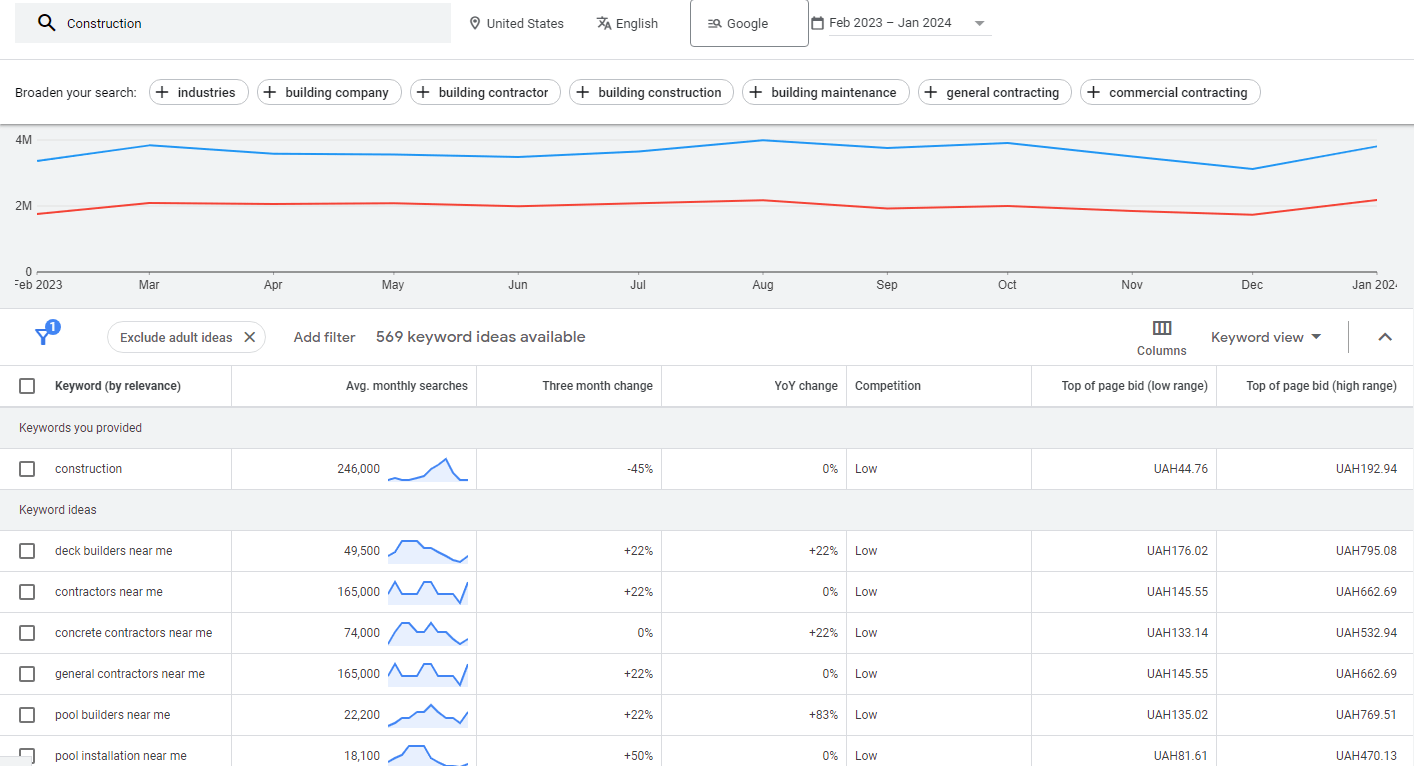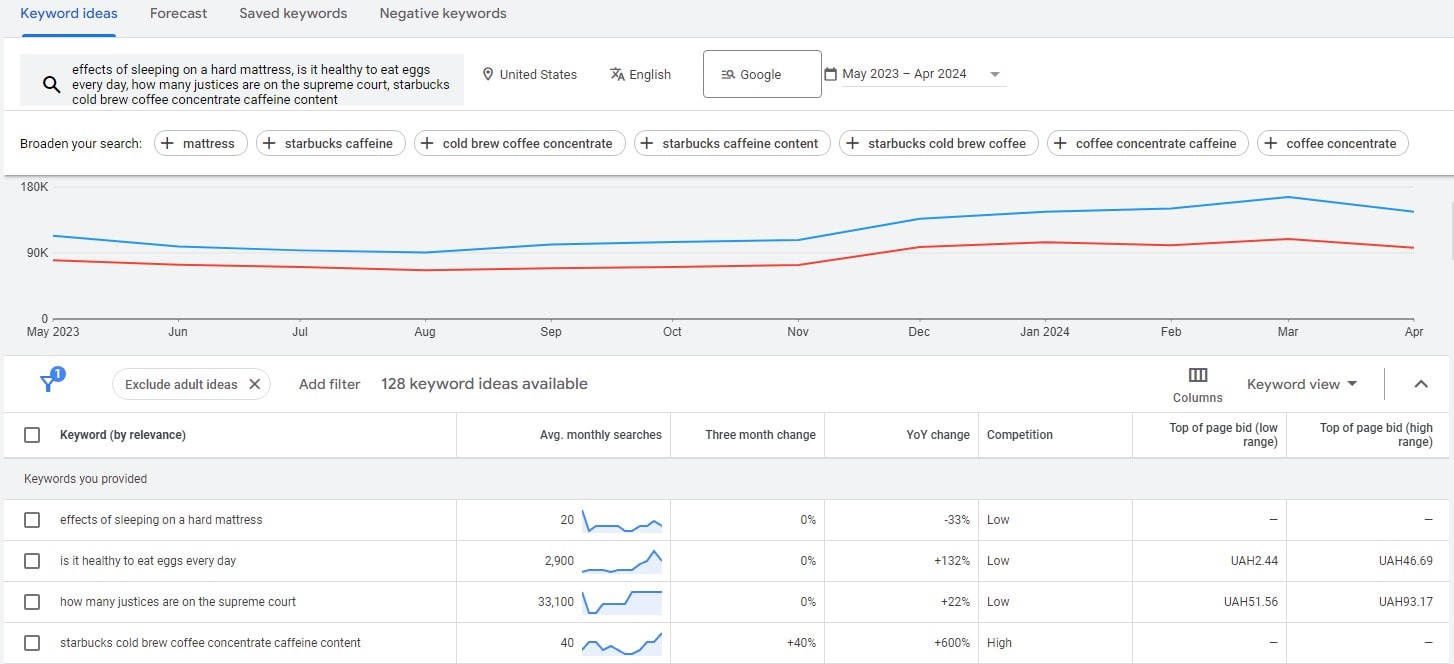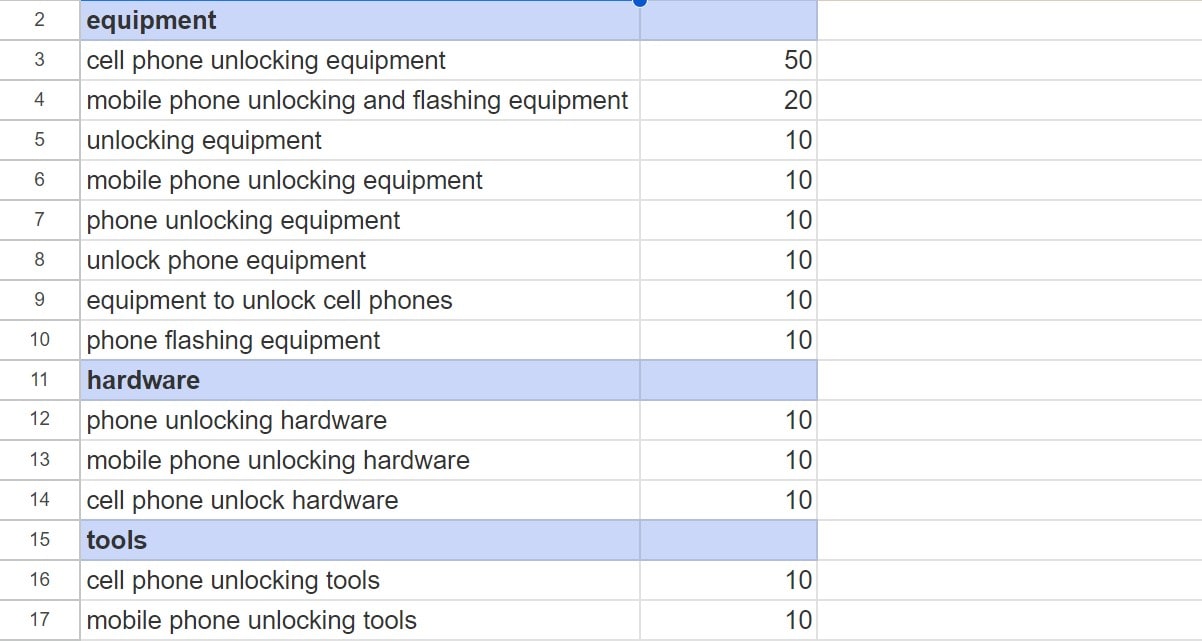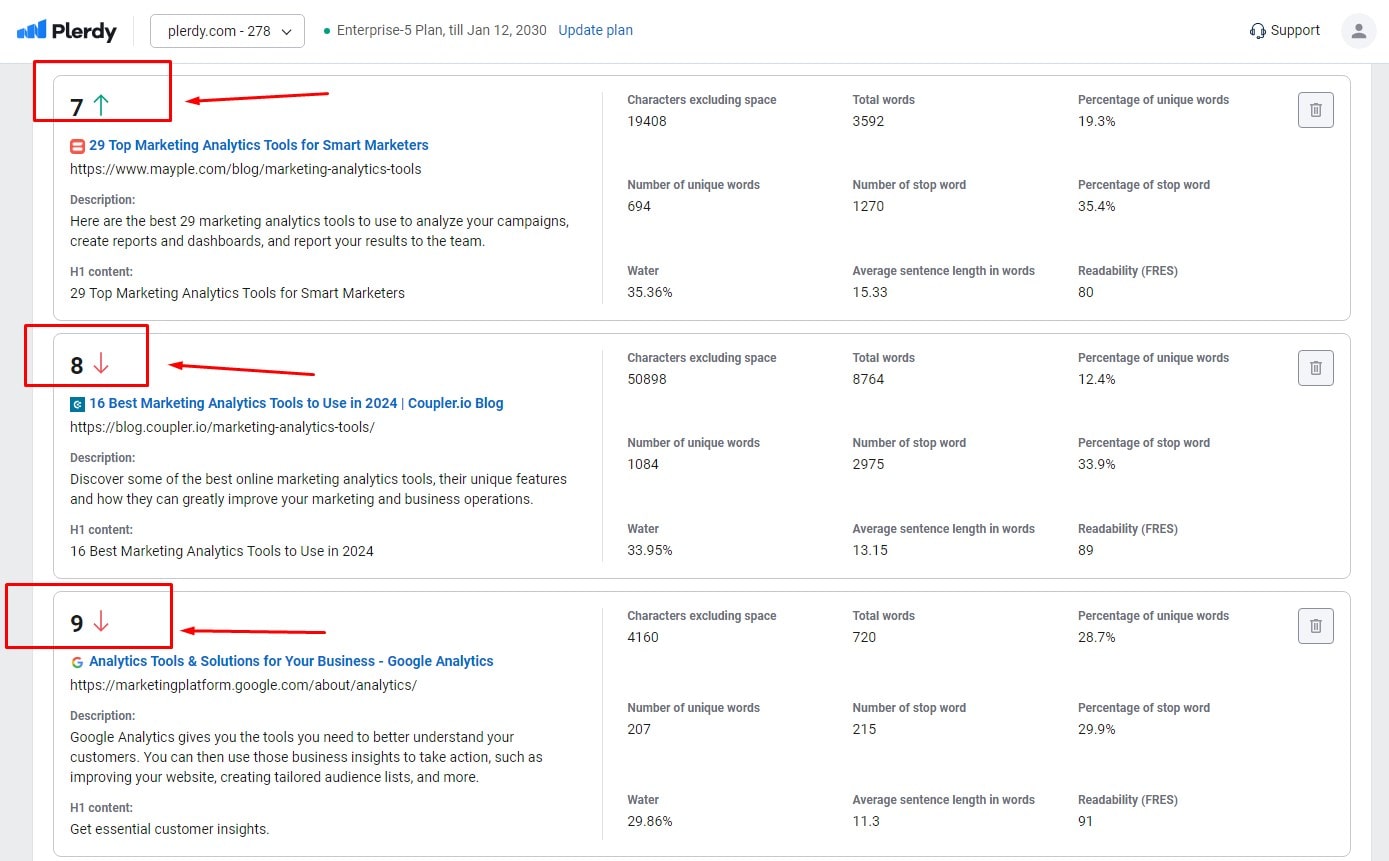Fundamental to every successful SEO plan is keyword research. It finds the terms and phrases that search engines use to find your target audience, so you can produce material that draws visitors. Here’s how to conduct research on keywords that boosts website traffic.
Keyword research: definition and examples.
Search phrase research is the process of determining and evaluating search terms that people use in search engines. Because it enables you to produce material that satisfies your audience’s needs and raises your search engine rankings, it is an essential component of SEO. Finding out which particular words and queries your potential customers use can help you customize the information on your website to correspond with their search intent.
Locating high-volume, low-competition keywords that can increase targeted traffic to your website is the main objective of keyword study. Tools for this include often Ahrefs, SEMrush, and Google Keyword Planner. Through their insights into search volumes, keyword difficulty, and rival performance, these tools enable you to choose keywords with knowledge.
Creating seed keywords, expanding these ideas using keyword tools, examining search volume and competition, and finally including the chosen keywords into your content are all part of effective keyword research. When done well, keyword study can greatly improve your SEO plan and result in more website traffic and higher user interaction. See reputable sites like Ahrefs and Moz for more thorough instructions on keyword research.
Just why is keyword research important?
Search engine results visibility and success of your website are directly influenced by keyword research, hence it is essential. Knowing the particular words and phrases that your target audience uses helps you to provide material that answers their questions and wants. Specializing on these terms will help you draw in more relevant and focused visitors to your website.
Finding high-traffic, low-competition keywords is made easier with effective keyword research on search engine results pages (SERPs). More potential conversions, more website traffic, and more visibility follow from higher rankings. Insights into market trends are another benefit it offers, which keeps you ahead of rivals by pointing up chances they might have missed.
Researching keywords is also essential to maximizing your whole SEO approach. It directs content production so that your articles, blog entries, and other materials are in line with what your readers are looking for. Along with raising user engagement, this alignment raises the authority and relevance of your website in your field.
1. Understanding Keyword Research
Finding and deciphering search phrases that individuals type into search engines is known as keyword research. Knowing what your audience is looking for and how to appear higher in search engine results are made easier with it. Moz states that keyword research affects all other SEO tasks, including on-page SEO, content themes, and promotional effort.
Guidelines for Understanding Keyword Research
- Describe Your Specialty: Understand the industry you work in.
- Find Your Readership: Know the people that might visit your website.
- Analyze Rivals: Find out what terms your rivals are ranking for.
2. Keyword Research Tools

It takes the correct instruments to do keyword research well. Here are some of the greatest instruments.
The Best Keyword Research Tools
- For finding keywords straight from Google’s data, use the Google Keyword Planner.
- Great for keyword difficulty and competitive analysis is SEMrush.
- Ahrefs: Offers thorough analysis of keyword performance and that of competitors.
- Useful for SERP analysis and keyword recommendations is Moz Keyword Explorer.
- Ubersuggest is a fantastic tool for finding fresh terms and ideas for articles.
Tools Comparison Table
| Tool | Best For | Cost |
|---|---|---|
| Google Keyword Planner | Basic keyword research | Free |
| SEMrush | Competitive analysis | Paid |
| Ahrefs | Comprehensive keyword insights | Paid |
| Moz Keyword Explorer | Keyword suggestions | Paid |
| Ubersuggest | Discovering new keywords | Free/Paid |
3. Finding the Right Keywords
Choosing keywords is deciding on terms that are pertinent to your writing and have a lot of searches but little competition.
The Right Keywords: A Guide
- Organize Seed Keywords Start with simple terms connected to your specialty.
- Make Use of Keyword Tools To receive suggestions, enter seed keywords into SEMrush or Ahrefs.
- Analyse Competition and Search Volume: Select terms with little rivalry and a lot of searches.
- Verify Relevance : Make sure the keywords apply to your audience and material.
Example
For a blog on “healthy eating,” for instance, “nutrition,” “diet,” and “healthy recipes” might be seed terms. Find relevant terms like “best healthy diets 2024” or “easy healthy recipes” with a tool like Ahrefs.
4. Long-Tail Keywords

Longer and more precise keyword phrases are what visitors are more likely to utilize when they get closer to making a purchase or locating the information they require.
Long-Tail Keyword Benefits
- Less Competition: Ranks easier than big keywords.
- More precise to what consumers are looking for, higher conversion rates.
- Greater Targeted Traffic: Draws in visitors who are obviously intent.
Finding Keywords with Long Tails
- Check out Google Suggestions: Google a keyword, then see what autocomplete offers come up.
- Examine Rival Content: Find out what long-tail keywords rivals are employing.
- Use Tools: Long-tail keyword suggestions can be found using services like SEMrush and AnswerThePublic.
Example
A broad term for a fitness website may be “workouts.” Best home workouts for beginners might be a long-tail keyword.
5. Analyzing Keyword Competition
Complementing your understanding of the difficulty of ranking for a certain keyword is an analysis of keyword competition.
Components of Keyword Competition Analysis
- Use SEO Tools: The keyword difficulty score can be displayed by Ahrefs or Moz.
- Analyse Features of SERP Examine the content of the top-ranking pages right now.
- View Domain Authority: Competing with websites with higher domain authority is more difficult.
- Analyze Reference Links Check out the number of backlinks the pages with the highest rankings have.
Example
For instance, Ahrefs and other tools can display a keyword difficulty score of 50 (on a 0 to 100) for the term “digital marketing tips.” This suggests fairly competitiveness.
6. Grouping Keywords

Putting keywords into clusters will enable you to produce better and more logical material.
Methods of Keyword Grouping
- Decide on Primary Topics Choose the major subjects you wish to address.
- Cluster Keywords: Sort terms and search queries by comparable intent.
- Scoop Up Content: Build material around these clusters to raise your SEO.
Example
Main subjects for a travel blog, for instance, might be “packing lists,” “destination guides,” and “travel advice.” Related terms for “destination guides” might be “top travel destinations 2024” and “best places to visit in Europe.”
7. Creating Content Around Keywords
Writing around your keywords is writing with them organically.
Conventional Wisdom
- In titles, use keywords: Put your main term right in the title.
- Naturally Include Keywords Stuff keywords; use them naturally.
- Utilise Related Term Synonyms: It also makes reading easier and helps prevent repetition.
- Optimise Meta Descriptions Give your meta descriptions keywords.
Example
With the phrase “healthy breakfast ideas,” a blog article title can be “10 Healthy Breakfast Ideas to Start Your Day Right.” Make sure the term naturally appears throughout the material, including in the introduction and subheadings.
8. Monitoring and Adjusting Your Strategy

It takes work to do SEO once. Keep ahead by constant observation and modification.
Procedures for Keeping an Eye on Things
- Track Keyword Positions: Track your rankings with SEMrush or Google Analytics.
- Examining Traffic Statistics Check the most popular keywords.
- Edit Information Analyze performance statistics to update your content.
- Keep Up to Date with SEO Trends Keep up with the newest developments in SEO practices.
Example
Make the material more thorough and promote it to raise the ranking if a term like “best SEO tools” is generating traffic yet is on the second page.
9. Using Keywords in Content Marketing
Maximizing your SEO activities requires careful keyword integration into your content marketing plan. This is how to go about it.
Types of Content
- Blog Posts: A broad spectrum of keywords and subjects can be targeted by regularly updated blogs.
- Infographics: Visual material able to draw in social shares and backlinks.
- Videos are interesting, very shareable material that can target keywords in titles and descriptions.
- Ebooks and Guides: Comprehensive material designed to establish authority and target long-tail keywords.
How to Integrate Keywords
- Titles and Headers: Make sure titles and H1, H2 tags contain your main keywords.
- Background and Summary: Make early keyword mentions and then summarise them at the conclusion.
- Everywhere in the Content Obviously, without overloading the body language, use keywords. Meta Tags: Use pertinent keywords to optimize meta titles and descriptions.
- For photos, include keywords in the alt text.
Example
Keywords in the title, description, and tags might help a video series titled “Top Digital Marketing Strategies for 2024” be optimized for a blog about “digital marketing strategies.”
10. Keyword Research and Voice Search

Growing in popularity, voice search calls for a little different strategy for keyword research.
Voice Search and Keyword Research
- Conversational Tone: People usually use lengthier sentences and natural language.
- Many voice searches take the form of questions.
- Local searches are frequently made for urgent needs and local information.
Making Voice Search Optimal
- Give Long-Tail Keywords Your Attention: Use words that people actually say.
- Respond to Questions Make stuff that responds to often asked queries about your area of expertise.
- Make Use of Structured Data Apply schema markup to make your content more comprehensible to search engines.
Example
For a home services company, focusing on queries like “best plumber near me” or “how to fix a leaky faucet” can draw in voice search traffic.
11. Measuring the Success of Your Keyword Strategy
You must routinely track and evaluate the success of your keyword approach to be sure it works.
Key Metrics to Monitor
- Important Indices for Tracking Organic Traffic Count how many people arrived via organic search.
- Monitor your position for target keywords by checking keyword rankings.
- Click-Through Rate (CTR): Calculate the proportion of people that click on your website from search results.
- Track the number of visitors that become leads or customers using the conversion rate tool.
- Examine the proportion of visitors that go after seeing one page, or bounce rate.
Measurement Tools
- Google Analytics offers in-depth information on user behavior and traffic.
- Monitors site health and keyword performance is Google Search Console.
- SEO tools for in-depth keyword monitoring and analysis include Ahrefs, Moz, and SEMrush.
Example
If organic traffic for your keyword “best vegan recipes” is growing but the bounce rate is high, think about updating the material to better satisfy users.
12 Typical Errors to Steer Clear of in Keyword Research
It will save you time and increase your SEO results to stay away from typical keyword research mistakes.
Common Mistakes
- Ignoring Search Intent: concentrating just on terms without taking user intent into account.
- Stuffing keywords is a bad user experience and can result in fines.
- Not Updating Keywords: Ignoring to update and refresh keywords in response to fresh information and trends.
- Ignoring Long-Tail Keywords: Ignoring highly conversion, easier-to-rank keywords.
- Not researching the keywords and tactics of competitors.
How To Stay Away From Them
- Recognise the Goal of the User Check and match keywords to what people are searching for.
- Retain Keyword Density Naturally and contextually use keywords.
- Updates Frequently Your keyword list should be constantly improved according to performance.
- Emphasis on the Long Tail Include in your plan long-tail keywords.
- Analysis of the Competitors Check competing keywords often and modify your approach.
Example
If a rival is doing well for “easy gluten-free recipes,” look at their material and modify your approach to include related or comparable terms.
Synopsis
A constant process, effective keyword research includes knowing your audience, using the appropriate tools, and continuously improving your content. The procedures in this article will help you raise search engine ranks, draw in targeted traffic, and increase the visibility of your website. Recall to keep up of SEO developments and modify your tactics as needed to keep a competitive advantage.
Please contact me with any queries or if you require additional assistance with keyword research. Enjoy your optimization!
